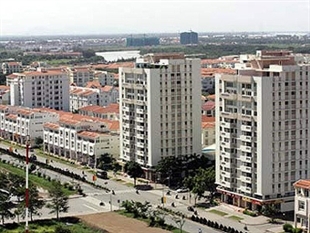
| A waste of public land due to poor management | |
Preliminary statistics show that more than four million square metres of public land are abandoned and tens of millions more are not put into proper use in Hanoi and Ho Chi Minh city alone. Many public houses, stores and grounds are in such a situation. Many organizations occupy a large area of land with a nominal lease or no lease at all. In most cases, they let their land go to waste or sublet it at a much higher rate than they have to pay the state. The wrong use of many valuable sites inside the cities causes a huge loss of public money estimated at thousands of billions of Vietnamese dong every year. One reason for the problem is an overlap in state management of public land. For instance, in both cities public land is co-managed by the department of construction, the department of resources and the environment, and the department of finance. Consequently, it is not clear what agency has the major responsibility for land use oversight. A second reason is that inconsistency in regulations has blocked attempts to revoke land use rights. On top of this, relevant state agencies have proved bureaucratic and incapable of managing public land in a proper manner. Some are completely ignorant of encroachments on public land, related disputes and illegal sales of public land to private individuals. To make matters worse, quite a few businesses place their own interests above the common interest. Despite their ineffective use of land, they still insist on keeping it at their disposal. Many people argue that the state’s land leases should be adjusted to be close to market prices with the aim of preventing the ongoing waste of public property. It is expected that with a more suitable financial policy put in place, economic sectors will have more equitable access to public land and other natural resources. | |
| VnInfoGate.Com |
